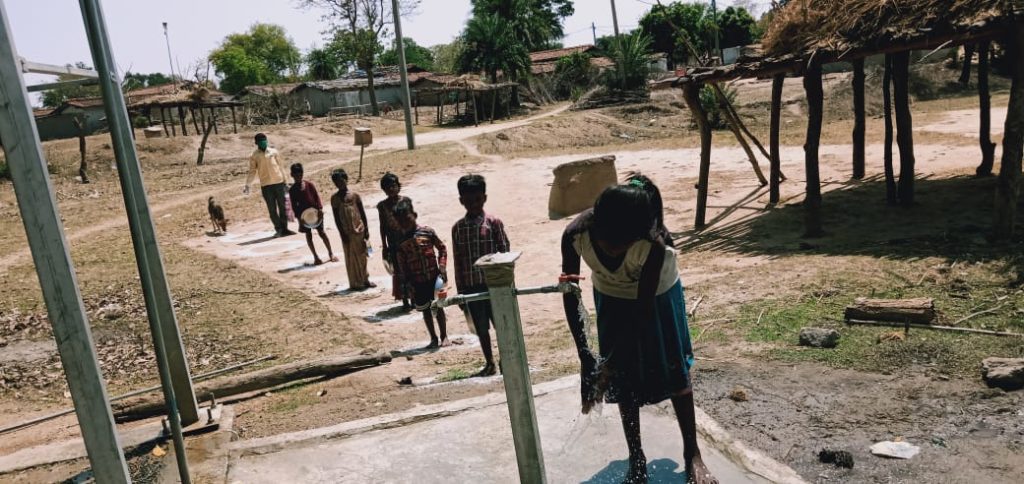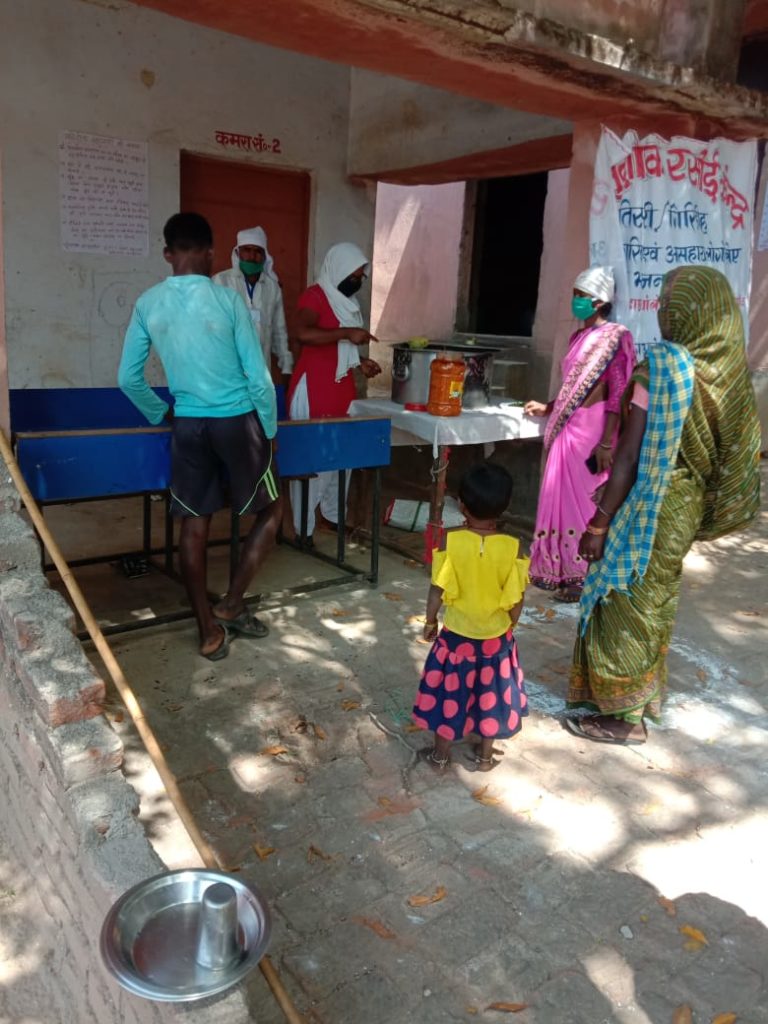
While governments across the world continue to combat the Covid-19 pandemic, the government of India instituted a nationwide 21-day lockdown on March 24th just a few days after the states of Jharkhand and Bihar states announced a state-wide lockdown starting March 22nd.
The lockdown is essential to contain the spread of the virus, but is also likely to hit vulnerable mica-dependent communities in Bihar and Jharkhand, which are now deprived of their main source of livelihood. Indeed, the whole mica supply chain has stopped with the inevitable decline in global commerce, and with it the purchase of raw mica to mica pickers and collectors. Moreover, mica-dependent communities often lack savings, making it very difficult for them to access essential commodities.
In line with government recommendations, the Responsible Mica Initiative (RMI) immediately put its programs on hold and redirected its resources to support mica-dependent communities in new ways. After contacting District administrations to assess where RMI could effectively aid and supplement the efforts of state and local government, RMI was invited to help set up and operate Community Kitchens in four blocks of the Giridih and Koderma districts of Jharkhand state.
With the assistance of Block Development Officers, who provided the list of beneficiaries, and RMI’s local NGO partners, who implement RMI’s Community Empowerment Programs, Community Kitchens are providing two meals per day to nearly 1000 people for 21 days.
RMI’s support is financial too: INR 9 lakhs (11,000 €) have been redirected from RMI’s programs to ensure Community Kitchens remain operational.
Community kitchens benefit vulnerable people, from mica-dependent communities to migrant workers and day laborers. People who are able to travel over short distances can access Community Kitchens on their own, while volunteers deliver food packs directly to those who cannot, including the elderly and disabled.
In addition to Community Kitchens, a group of seven women came forward to produce masks using an approved prototype shared by the Jharkhand Health Department and the Jharkhand State Livelihood Promotion Society. More than 2000 masks are expected to be distributed in neighboring villages, which will not only create an opportunity for the women to receive an income, but also help community members obtain masks prescribed by health authorities to protect themselves and others from COVID-19.
As RMI supports and scales up these time and cost-effective initiatives, it will work to ensure that everyone involved follows the health and safety protocols issued by the government and leading health experts to protect themselves and others against from the virus.
RMI will continue to monitor the situation in Bihar and Jharkhand. The significant impact COVID-19 will have on people’s lives remains worrying, especially with regard to local communities around the world who depend on mineral collection like the mica communities in India. RMI remains steadfast in its commitment to help vulnerable communities access essential goods and support as long as COVID-19 crisis lasts.
